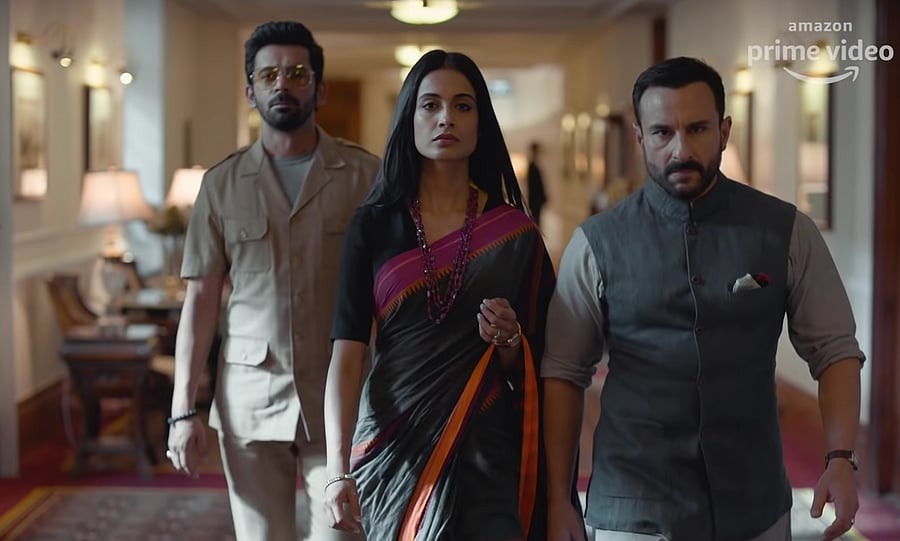
After the controversy surrounding 'Tandav’ and 'Mirzapur,' the central government is proposing content guidelines for over-the-top (OTT) platforms.
The idea hasn’t gone down well with filmmakers and actors, who believe this will not only curtail their creative liberty, but also rob them of a platform that gave them room to explore.
Director Girish Kasaravalli, whose National award-winning works include ‘Ghatashraddha’, ‘Tabarana Kathe,’ ‘Thaayi Saheba’ and ‘Dweepa’, believes any censorship that intrudes on a creative space like filmmaking is unwarranted.
“Sometimes, there are ideas that are radical and provoke one to think, retrospect and introspect. Stopping them would be unfortunate,” Girish told Showtime.
He feels the proposal must be used to start a healthy debate. “Good films make you reflect and it is up to an individual to decide what he takes in and what he leaves out. Feedback is what inspires filmmakers. Free thinking should not be curbed,” he says.
The guidelines must be more about certification than censorship, says Pawan Kumar, director of such award-winning films as ‘Lucia’ and ‘U-Turn’. Pawan is also the founder of Film United Club (FUC), an independent body that encourages debate about filmmaking.
“Rules are open to a lot of misinterpretation. I think we should trust society because it can certainly decide what to take and reflect on. No movie has instigated a mob till now, but there have been films that have triggered strong debates and discussions,” says Pawan.
He feels creative people will definitely find ways and means to express their views and reach their audiences even in adverse circumstances.
Director K M Chaitanya wonders why the government should draw up guidelines for filmmakers on OTT. “Why can’t there be an independent body for self-regulation?” he says.
Samyukta Hornad, actor featured in successful web series and films released on OTT, says, “Art and politics go hand in hand. Art, music and films have always worked to spread awareness about what is happening in society. The beauty of OTT platforms is that directors can tell stories that could move people. Now, it’s like snatching that freedom away,” she says.
She believes the camera can be viewed “both as a weapon of mass destruction and mass construction.”
In January 2019, video streaming service providers had signed a self-regulatory code with guidelines that prohibited content disrespecting the national flag or emblem, promoted child pornography, and outraged religious sentiments.
A producer, who holds shares in an OTT platform, told Showtime, “There could be two ways of addressing. One is to create an independent body that regulates content, without any fear or favour. The second is to bring OTT platforms under the watchful eye of a government body, as it is now done in the case of TV.”